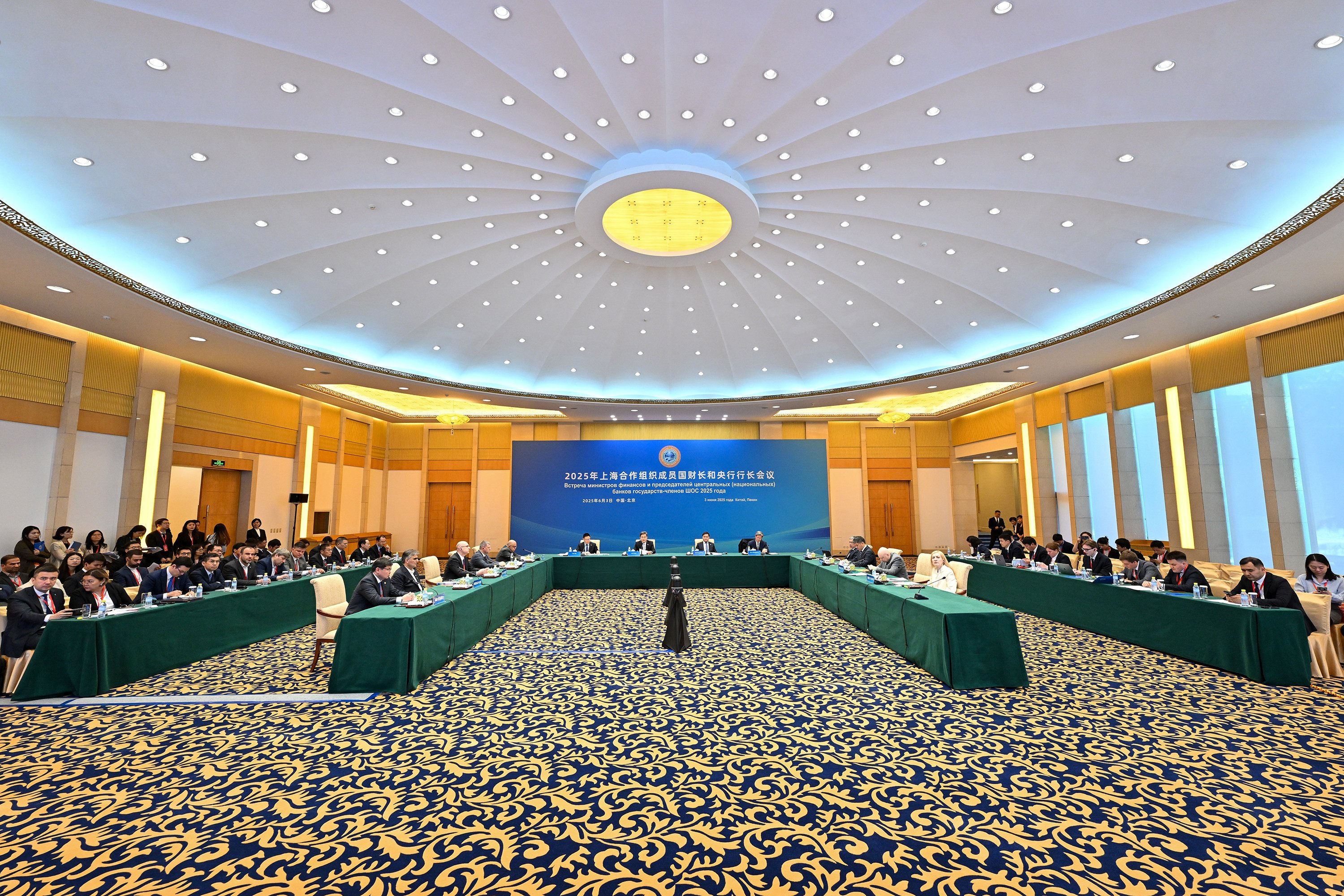China pushes regional finance bank as Russia pivots to Asia: analysts
Beijing’s bid to deepen Eurasian economic integration gains momentum as Western pressure forces Moscow to recalibrate, analysts say

As the United States scales back foreign aid and increases financial sanctions through long-arm jurisdiction, analysts said Beijing is strengthening its influence in international development finance and regional economic cooperation.
Driven by rising geopolitical tensions and Russia’s strategic pivot to the East, they said the Shanghai Cooperation Organisation (SCO) Development Bank, which has been stalled for over a decade, was now closer than ever to becoming a reality.
Momentum is building ahead of an autumn summit in Tianjin, a northern port city 100 kilometres east of Beijing, where SCO leaders – including those from Russia and five Central Asian nations – are set to convene.
In early June, China’s Vice-Premier Ding Xuexiang highlighted the bank proposal, along with related initiatives for local currency settlement and digital finance, during a meeting with SCO finance ministers and central bank chiefs in Beijing.
First proposed by China in 2010 to promote regional trade and the use of local currencies, the bank has frequently surfaced in high-level discussions – but progress has remained elusive.
A source familiar with the policy discussions told the Post that Russia had previously opposed the plan, preferring instead to expand its Eurasian Development Bank.
The SCO – which now also includes India, Pakistan, Iran and Belarus – operates by consensus, requiring all member states to unanimously approve decisions.
But Moscow’s stance had softened since Europe and the US imposed sweeping sanctions after Russia invaded Ukraine in February 2022, forcing it to pivot towards the East, a Chinese scholar said on the condition of anonymity.
“China is pushing for the establishment of the new bank, but there is no timetable yet,” the scholar added.
Li Ruisi, a research fellow at the Institute of Russian, Eastern European and Central Asian Studies under the Chinese Academy of Social Sciences, said current conditions were more favourable than ever for launching a new multilateral bank.
The SCO initially focused on regional security issues through joint efforts to combat terrorism and separatism, but Li said it was increasingly prioritising economic cooperation as the region became more stable.
Kazakhstan, Kyrgyzstan and Uzbekistan have all voiced support for the new bank in recent years, as member states explore cooperation projects in clean energy and efforts to mitigate climate change, which require financing.
“This highlights the need for a development bank,” Li said, adding that member states must clearly define their respective funding shares given their different levels of economic development.
At the China-SCO Conference on Industrial Cooperation for Sustainable Development, held in Tianjin in April, member states signed 18 agreements totalling nearly 4.8 billion yuan (US$668 million). The deals covered areas such as new energy, new materials, infrastructure, mining and petrochemicals.
Jiang Siyu, a research fellow at the Institute of World Economics and Politics under the Chinese Academy of Social Sciences, said the SCO Development Bank could prioritise infrastructure and energy projects in Central Asia to better meet the region’s needs.
She noted that the bank could also play a unique role in financing border infrastructure and cross-border security projects – areas often overlooked by other multilateral lenders such as the Shanghai-headquartered New Development Bank, established by the Brics group of emerging economies, and the Eurasia Development Bank, which primarily serves Russia’s regional agenda.
The proposed bank should strike a balance between supporting less developed countries and ensuring a reasonable return on investment, she added.
Still, there are potential hurdles to establishing the new development bank, including reluctance from India.
Indian Prime Minister Narendra Modi skipped the organisation’s summit held in Astana in July 2024.
“India’s multi-alignment diplomacy aims to counterbalance China’s regional ambitions while maintaining it as a key trade partner,” according to a report by the Delhi-based think tank Observer Research Foundation last year.
A development bank aimed at strengthening regional cooperation and integration could also face scrutiny from the West. US President Donald Trump has repeatedly threatened Brics nations when some member states discussed possible alternatives to the US dollar.